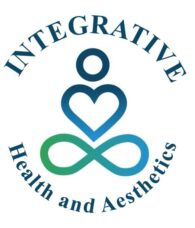Are you tired of feeling tired all the time? Or are you grappling with night sweats and mood swings? Has your desire for sex vanished? Millions of men and women just like you are struggling with symptoms of hormone imbalance, including weight gain, depression, insomnia, low energy, brain fog and more.
Get rid of your symptoms for good. Restore hormone balance with the BHRT certified provider. As a certified provider, we will create a tailored treatment plan designed to fit your lifestyle, address the root cause of your symptoms, and optimize your health.
To schedule a consultation and learn more about hormone health and balance, contact us now.
What is Hormone Replacement Therapy?
Hormone Replacement Therapy (HRT) is a medical treatment that involves supplementing the body with hormones, most commonly estrogen, progesterone, and even testosterone—to restore levels that decline naturally with age or due to certain medical conditions.
It’s most often used in menopause management but can also apply in other contexts.
Bioidentical hormone replacement therapy is a natural menopause treatment option. More than 10 major medical organizations have endorsed hormone therapy as the best treatment for symptoms of menopause. Bioidentical hormones are an exact structural match to the hormones found in the human body, offering enhanced safety and efficacy.
Today, bioidentical estradiol and bioidentical testosterone are available as pellet hormone replacement therapy. Women no longer have to experience the hormonal roller coaster that occurs with other forms of hormone therapy and there is no need to remember to take a pill or slather on a cream each day.
If you are experiencing menopausal symptoms, it is time to seek the expertise of a provider who understands hormone health and can help you effectively treat hormone imbalance.
🔹 In Women
Millions of women struggle with hormone imbalance. For many women, this condition is not limited to middle age because women experience so many hormonal fluctuations across their lifetime. From monthly menstruation to pregnancy and perimenopause to menopause, a woman’s hormones endure significant changes during each stage. In some cases, hormonal levels never return to “normal,” leading to symptoms like those listed below.
• Unexplained Weight Gain
• Excess Belly Fat
• Night Sweats
• Hot Flashes
• Anxiety
• Depression
• Mood Swings
• Low Sexual Desire
• Insomnia
• Low Energy
• Fatigue
• Memory Problems
• Lack of Focus
• Vaginal Dryness
Almost every major body process is dependent on hormones, including mood, stress, sleep-wake cycles, fertility, appetite regulation, and metabolism. The imbalance of even a single hormone can cause a serious disruption to your well-being. Conditions of hormone imbalance like thyroid disorder, hypoactive sexual desire disorder (HSDD), premenstrual syndrome (PMS), and premenstrual dysmorphic disorder (PMDD) may affect women long before menopause, meaning you don’t have to be in your 40s or 50s to have a hormone imbalance.
While symptoms of hormone imbalance are vastly similar to the symptoms many people experience as they age or when stress is high, it’s not normal for those symptoms to cause discomfort for weeks or months on end. And, it’s certainly not normal to be chronically distressed, anxious, or irritable to the point your job and relationships are impacted.
• Purpose: To relieve symptoms of menopause caused by declining estrogen and progesterone levels.
• Symptoms it helps with:
o Hot flashes, night sweats
o Vaginal dryness and painful intercourse
o Sleep disturbances
o Mood swings, anxiety, depression
o Bone loss (osteoporosis prevention)
🔹 In Men
Aging often brings hidden challenges, and for men, declining testosterone levels can quietly erode physical vitality, emotional resilience, and mental sharpness. Yet, this common issue doesn’t have to define your health journey.
It’s estimated that 1 in 4 men over the age of 30 experience low testosterone levels, affecting approximately 13 million men in the United States. Despite its prevalence, many cases remain undiagnosed, leaving men unaware of the potential risks to their health and quality of life.
The effects of low testosterone in men extend beyond physical symptoms, impacting emotional well-being and overall health. Men with testosterone deficiency may experience reduced energy levels, a decline in muscle mass, and even an increased risk of chronic conditions like heart disease and diabetes.
What Is Andropause?
Testosterone is produced primarily in the testicles in men and plays a central role in a man’s appearance and sexual development. Testosterone stimulates sperm production, stimulates libido, and supports bone and muscle mass. Research has found that testosterone has a protective effect on a man’s health. Low levels of testosterone are associated with increased risk of chronic disease and all-cause mortality. Though testosterone is so vital to a man’s health and wellbeing, it is also a casualty in the process of aging.
When a man reaches his 30s, testosterone levels begin to decline, dropping by approximately 1 percent each year. The period of time when a man begins to experience symptoms of low testosterone—most often in his late 30s to early 40s—is also known as andropause. By the time a man is in his 70s he has only a fraction of the testosterone he had in his twenties, making him susceptible to heart disease, metabolic syndrome, and several other preventable chronic diseases.
Symptoms of Low Testosterone in Men
A decline in testosterone levels can manifest in various ways, affecting both the body and mind. Recognizing these symptoms is crucial, as they can significantly impact a man’s quality of life and may signal underlying health concerns. Blood tests are often required to confirm these symptoms.
• Low Sex Drive
• Difficultly Achieving or Maintaining an Erection
• Low Semen Volume
• Fatigue
• Low Energy
• Sleeplessness
• Weight Gain
• Muscle Mass Loss
• Hair Loss
• Bone Mass Loss
• Irritability
• Anxiety
• Depression
• Brain Fog
• Difficulty Concentrating
• Memory Loss
Ignoring low testosterone can lead to more than just daily inconveniences—it’s a gateway to chronic illnesses that can derail long-term health. Understanding these risks can encourage men to seek timely medical attention and prevent care.
Treatment Options for Low Testosterone in Men
• Testosterone Gels / Creams
Creams and gels are preferred by some patients for their ease of application and are a well-known delivery method. However, it is important to know that the risk of transference is high—higher than any other delivery method.
• Testosterone Injections
Injections are preferred by some patients because they may be administered at home and deliver a quick boost of testosterone after administration. However, injections also lead to great highs and lows during the treatment cycle, leaving patients facing uncomfortable symptoms between doses.
• Testosterone Pellets
Pellet therapy is a method of delivery that dates back to the 1930s and offers both convenience and effective treatment. A tiny pellet, about the size of a grain of rice, is inserted under the skin and is slowly metabolized over 3 to 6 months, delivering a dose of testosterone that is vastly similar to the natural dosing cycle of the human body. There is no risk of transference, no worry about remembering to slather on a cream or take a pill, and the therapy is administered in even doses throughout the treatment cycle, avoiding significant highs and lows.
Regardless of the hormone therapy delivery method, men who are seeking to achieve optimal levels of testosterone should pair pharmaceutical grade supplements, a nutrient-rich diet, and routine exercise into their lifestyle.
• Nutraceuticals
Your practitioner can help guide you on the best nutraceuticals to support hormone optimization. For example, vitamin D, magnesium, and zinc have been linked to promoting healthy testosterone levels. Supplementing a combination of nutrients is essential to promote increased uptake of testosterone as well as support natural improvements in hormone levels.
• Nutrition
Research has shown that a higher-fat (and, of course, low sugar) diet can support healthy testosterone levels. A balanced meal might contain fatty fish, like salmon with dark leafy greens, including spinach and kale. Dark leafy greens have been associated with improvements in testosterone health. Avocados, eggs, and berries top the list of foods that support optimal testosterone levels.
• Exercise
Physical activity of any kind is beneficial to better health, but it is well-known that resistance training or weight-bearing exercises promote both long- and short-term boosts in testosterone. Experts recommend an afternoon pump session for the most effective boost in testosterone.
Testosterone Pellet Therapy For Men
Testosterone pellets are tiny implants, about the size of a grain of rice, inserted under the skin, typically in the hip area. These pellets release testosterone slowly and steadily over 3 to 6 months, ensuring a consistent hormone supply.
This delivery system closely mimics the body’s natural hormone secretion, helping to control hormone production while avoiding the peaks and troughs often associated with other forms of testosterone replacement therapy.
The procedure for pellet insertion is simple and minimally invasive. During a short office visit, the practitioner makes a small incision, inserts the pellet, and seals the area with medical tape. Once inserted, the body metabolizes the pellet at a controlled rate, providing optimal testosterone levels without the need for frequent dosing.
Why Choose Pellets?
• Ease of Use: Unlike daily gels or weekly injections, testosterone pellets require minimal maintenance, freeing patients from the hassle of remembering frequent applications.
• Consistent Hormone Levels: The slow-release mechanism ensures stable testosterone levels, reducing the dramatic fluctuations that can occur with other treatments.
• Minimal Side Effects: This method eliminates the risk of skin irritation or accidental transference, which are common concerns with testosterone gel or creams.
Additional Benefits
Beyond addressing low testosterone levels, pellet therapy offers additional health advantages:
• Improved Cognitive Function: Men reported better focus, reduced brain fog, and enhanced memory.
• Bone and Muscle Health: Increased bone density and muscle size help prevent age-related declines.
• Mental Well-being: Relieved symptoms of depression and anxiety, contributing to an improved quality of life.
• Chronic Disease Prevention: Maintaining optimal testosterone has been linked to reduced risks of chronic conditions such as heart disease and type 2 diabetes.
• Sometimes used in testosterone replacement therapy (TRT) for men with low testosterone due to aging or medical conditions.
At Integrative Health & Aesthetics, HRT is personalized—dose, type, and duration depend on an individual’s health history, risk factors, and treatment goals.


